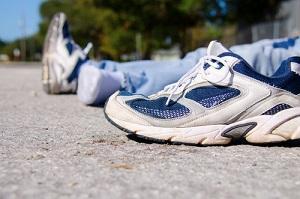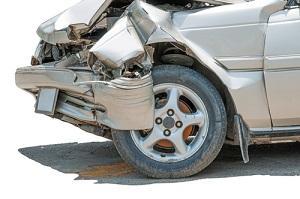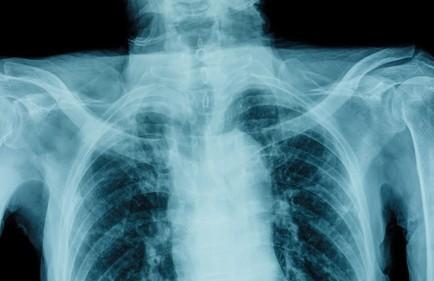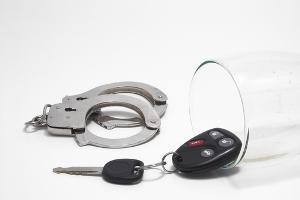Recent Blog Posts
An Uninsured Driver Hits a Pedestrian: Now What?
 As a responsible adult, you have always made sure to remain in compliance with safety and liability laws especially as they relate your car and driving privileges. You keep your registration current, you wear your seatbelt and require passengers to wear theirs, you never drive under the influence, and you maintain full liability and collision insurance on your vehicle.
As a responsible adult, you have always made sure to remain in compliance with safety and liability laws especially as they relate your car and driving privileges. You keep your registration current, you wear your seatbelt and require passengers to wear theirs, you never drive under the influence, and you maintain full liability and collision insurance on your vehicle.
When you are behind the wheel, many of these concerns are well within your control. When you are a pedestrian, whether crossing the street or walking for miles, you are at the mercy of the drivers around you. If you are hit by a car as a pedestrian, your avenues for compensation may be rather unclear specifically if the driver is uninsured.
Know Your Options
As a "fault" insurance state, Connecticut provides those who have suffered losses in automobile crashes, including vehicle-pedestrian incidents, several methods for getting their losses covered. An injured party may choose to pursue a civil claim in the form of a personal injury lawsuit against the at-fault party. The assistance of a qualified lawyer can help ensure your claim is paid correctly.
Connecticut Court Issues Conflicting Ruling on Requirement to Show Pistol Permit
 According to the U.S. Centers for Disease Control and Prevention (CDC), some 33,000 deaths around the country each year are related to firearms. Considering such statistics, combined with the seemingly endless stream of high-profile shootings every few weeks, it should come as little surprise that the state of Connecticut and other jurisdictions take their gun control laws very seriously. A recent decision by a state Superior Court, however, suggests that following the letter of such laws may not be enough to keep some gun owners out of trouble.
According to the U.S. Centers for Disease Control and Prevention (CDC), some 33,000 deaths around the country each year are related to firearms. Considering such statistics, combined with the seemingly endless stream of high-profile shootings every few weeks, it should come as little surprise that the state of Connecticut and other jurisdictions take their gun control laws very seriously. A recent decision by a state Superior Court, however, suggests that following the letter of such laws may not be enough to keep some gun owners out of trouble.
Request to Show a Permit
A case before the Superior Court this past spring arose from an incident in 2013 when two men were walking on a public boardwalk openly carrying loaded handguns. A local police officer stopped the men and requested to see their permits. One of the men immediately complied, but the other refused, despite truthfully stating he had the permit on his person, later citing the officer’s lack of reasonable suspicion. The man was subsequently charged with interfering with police and had his permit revoked. The man successfully applied for reinstatement of his permit, a decision that was appealed to the Superior Court by the Commissioner of the Department of Emergency Services and Public Protection (DESPP).
Connecticut Senator Leads Effort to Strengthen Animal Cruelty Prosecution
 The tragic stories are everywhere, and they seem to be hitting headlines with regularity. In late August, a Massachusetts woman who worked as a dog trainer in Connecticut was charged with 29 counts of animal cruelty. Earlier in the month, a Texas law enforcement officer was fired amidst allegations of negligence when his police dog was left in his patrol car and died.
The tragic stories are everywhere, and they seem to be hitting headlines with regularity. In late August, a Massachusetts woman who worked as a dog trainer in Connecticut was charged with 29 counts of animal cruelty. Earlier in the month, a Texas law enforcement officer was fired amidst allegations of negligence when his police dog was left in his patrol car and died.
Despite the widespread occurrences, cases of animal cruelty can be challenging to prosecute as state laws differ greatly, and no current federal statute exists expressly prohibiting cruelty to animals. Senator Richard Blumenthal of Connecticut is looking to change that, as proposed legislation in Washington would make animal torture a federal crime and a felony.
Federal Push
Several years ago, the United States Congress outlawed the selling of videos depicting animal cruelty and torture but stopped short of criminalizing the acts themselves at a federal level. In 2014, Senator Blumenthal was at the forefront of the effort to amend the nation’s animal fighting laws, making it illegal to attend or bring a child to a cockfight or a dogfight. Now, the Democratic senator is looking to close the loophole many believe Congress left in 2010, as is a principal co-sponsor of a bipartisan bill known as the Prevent Animal Cruelty and Torture Act, or PACT Act.
Putting it All Together: An Accident Reconstructionist Can Be a Valuable Asset
 The ensuing chaos after any motor vehicle accident can lead to a great deal of missed or lost information. Addressing injuries and clearing the roadways sometimes take precedence over definitively establishing what happened and the factors that may have contributed to the accident. This can be especially true when the accident involves large trucks or semitrailers.
The ensuing chaos after any motor vehicle accident can lead to a great deal of missed or lost information. Addressing injuries and clearing the roadways sometimes take precedence over definitively establishing what happened and the factors that may have contributed to the accident. This can be especially true when the accident involves large trucks or semitrailers.
The loss of information at the scene can present a number of challenges for you if you have been hurt in an accident, but fortunately, help may be available from a qualified personal injury attorney. In some cases, your attorney may employ the services of an accident reconstructionist to help determine what caused your injuries and the parties that should be held liable.
Truck Accidents are Different
While they may seem similar to a casual observer, car accidents and truck accidents are not the same. Car accidents, while certainly dangerous and potentially deadly of their own accord, are relatively straightforward as the physical characteristics of cars are fairly simple. Large trucks, conversely, are complicated machines that in addition to being significantly bigger,can weigh up to 20 times more than a full-size passenger sedan. The physics involved in large truck accidents are infinitely more complex and competently analyzing a truck accident involves comprehensive training.
Hit-and-Run Accidents: Finding the Liable Party
 The moments after an auto accident can be extremely chaotic. Under the best of circumstances, you are likely to be disoriented, confused, possibly injured, and very upset. The situation can be made even worse if the other driver—especially if he or she caused the accident—suddenly drives off, leaving you literally in the middle of road, responsible for cleaning up the mess. Leaving the scene of an accident is against the law, but as the victim of a hit-and-run accident, recovering the damages caused is probably more important to you than criminal prosecution.
The moments after an auto accident can be extremely chaotic. Under the best of circumstances, you are likely to be disoriented, confused, possibly injured, and very upset. The situation can be made even worse if the other driver—especially if he or she caused the accident—suddenly drives off, leaving you literally in the middle of road, responsible for cleaning up the mess. Leaving the scene of an accident is against the law, but as the victim of a hit-and-run accident, recovering the damages caused is probably more important to you than criminal prosecution.
Quickly Regain Composure
As it becomes clear to you that the driver who caused the accident has fled the scene, it is important to take control of the situation, if possible. Try to clear your head and do your best to postpone the inevitable flood of anger and resentment. There will be time for an emotional response later, but in the moment you need to gather as much information as you can quickly. If you have been seriously injured, try to communicate the situation to police or responders so that they can take appropriate action on your behalf.
Supreme Court to Decide Warrantless Mobile Phone Tracking Limits
 Most Americans understand the general protections offered by the Fourth Amendment to the U.S. Constitution. Its provisions are meant to guarantee the security of people, their homes, papers, and effects against unreasonable searches and seizures. Only a warrant, based on probable cause, is to give the government the power to override a person’s right to privacy.
Most Americans understand the general protections offered by the Fourth Amendment to the U.S. Constitution. Its provisions are meant to guarantee the security of people, their homes, papers, and effects against unreasonable searches and seizures. Only a warrant, based on probable cause, is to give the government the power to override a person’s right to privacy.
The digital age, however, continues to offer new and increasingly ambiguous challenges to the application of law enforcement as it pertains to the Fourth Amendment. The latest example, involving the use of mobile phone records without a warrant, is now headed to the U.S. Supreme Court, a case that is likely to set a precedent for many future decisions.
United States v. Quartavious Davis
Earlier this year, a federal appeals court in Florida ruled that the use of cell phone records obtained by court order did not violate a criminal defendant’s Fourth Amendment rights. The Eleventh Circuit Court of Appeals reversed a lower court’s decision, relying on precedents set long before the proliferation of mobile technology. The court held that, by making phone call, a person gives up certain expectations of privacy, as determined by the U.S. Supreme Court’s 1979 decision in Smith v. Maryland.
Connecticut Courts Grant High Rate of Erasure for Marijuana Convictions
 More than 30 marijuana possession convictions have been erased by Connecticut Superior Court judges in just a few months. While the number may seem relatively low compared to the thousands of marijuana-related arrests in the last several years, the rate of approval continues to be very high. Judicial branch records indicate that only 39 petitions had been processed through May 2015 to erase marijuana possession convictions, with more than 80 percent (a total of 32 cases) having been approved.
More than 30 marijuana possession convictions have been erased by Connecticut Superior Court judges in just a few months. While the number may seem relatively low compared to the thousands of marijuana-related arrests in the last several years, the rate of approval continues to be very high. Judicial branch records indicate that only 39 petitions had been processed through May 2015 to erase marijuana possession convictions, with more than 80 percent (a total of 32 cases) having been approved.
Decriminalization of Minor Possession
Earlier this year, the Connecticut Supreme Court was faced with a decision regarding the definition of decriminalization as it pertains to erasing a conviction. Under Connecticut law, a person who has been convicted of an offense that is later “decriminalized” may petition the court to have the conviction erased and all records of the case physically destroyed.
Should I See a Doctor if I Have Chest Pain After a Car Accident?
 The moments after a car accident can be a whirlwind of activity, fear, confusion, and dizziness. If you have been injured, pain and uncertainty about the future can compound the situation. Certain injuries may be more evident immediately, such as a broken arm or leg, or lacerations from broken glass. Signs of other injuries, however, may not develop for hours or days after the accident even if you sought immediate medical attention. Among the most commonly delayed symptoms are neck and back concerns, including signs of whiplash, and the onset of chest pains that may be caused by a number of very serious conditions.
The moments after a car accident can be a whirlwind of activity, fear, confusion, and dizziness. If you have been injured, pain and uncertainty about the future can compound the situation. Certain injuries may be more evident immediately, such as a broken arm or leg, or lacerations from broken glass. Signs of other injuries, however, may not develop for hours or days after the accident even if you sought immediate medical attention. Among the most commonly delayed symptoms are neck and back concerns, including signs of whiplash, and the onset of chest pains that may be caused by a number of very serious conditions.
Possible Rib and Chest Injuries
While neck and back issues can certainly be causes for serious concern, the development of their related symptoms is rather unsurprising to most car crash victims. Chest pains, on the other hand, tend to raise many more questions as they are frequently associated with life-threatening cardiac conditions and episodes. Fortunately, after a motor vehicle accident, there may be several explanations for thoracic pain and discomfort.
Operating Under the Influence: Understanding OUI Laws
 For decades, interest groups and awareness campaigns have sought to educate the public about the dangers of driving under the influence (DUI). Photos of mangled vehicles, staggering statistics, and tragic stories of DUI fatalities have certainly succeeded to a degree, as virtually nobody would claim that driving drunk is a safe choice. Sometimes, however, there seems to be a significant divide between what an individual sees as drunk driving and what the law says. Operating under the influence, or OUI, as it is known in Connecticut, is a serious charge and one that can have long-lasting effects on those who are convicted.
For decades, interest groups and awareness campaigns have sought to educate the public about the dangers of driving under the influence (DUI). Photos of mangled vehicles, staggering statistics, and tragic stories of DUI fatalities have certainly succeeded to a degree, as virtually nobody would claim that driving drunk is a safe choice. Sometimes, however, there seems to be a significant divide between what an individual sees as drunk driving and what the law says. Operating under the influence, or OUI, as it is known in Connecticut, is a serious charge and one that can have long-lasting effects on those who are convicted.
OUI Laws in Connecticut
There are two sections of the Connecticut General Statutes that form the basis of OUI or DUI laws in the state. The first applicable section establishes the legal definition of operating under the influence as the operation of “a motor vehicle (1) while under the influence of intoxicating liquor or any drug or both, or (2) while such a person has an elevated blood alcohol content.” A driver may not operate a private vehicle with a blood alcohol content (BAC) of .08 percent or higher. For a commercial vehicle, elevated BAC begins at .04 percent.
Medicare "Super Liens" and Personal Injury Claims
 If you receive Medicare benefits and are injured in an accident, federal law provides the Centers for Medicare and Medicare Services (CMS) with extensive authority to ensure that Medicare does not cover expenses for which it should not be liable. Commonly referred to in legal circles as a Medicare "super lien," the power held by CMS is not actually a lien, but instead the right to recover any payment made for expenses that should have been the responsibility of another insurance company or liable party.
If you receive Medicare benefits and are injured in an accident, federal law provides the Centers for Medicare and Medicare Services (CMS) with extensive authority to ensure that Medicare does not cover expenses for which it should not be liable. Commonly referred to in legal circles as a Medicare "super lien," the power held by CMS is not actually a lien, but instead the right to recover any payment made for expenses that should have been the responsibility of another insurance company or liable party.
Conditional Payment
Under law, Medicare will not pay for items or services if payment "has been made or can reasonably expected to be made under a workers’ compensation plan, an automobile or liability insurance policy or plan (included a self-insured plan or under no-fault insurance." When payment is not made by the expected primary payer, however, Medicare may provide coverage on a conditional basis, which must be reimbursed if and when the primary payer does make payment. This includes payments made directly to a medical provider, as well as payments intended for the Medicare beneficiary in the form of a settlement, judgment or other award.






